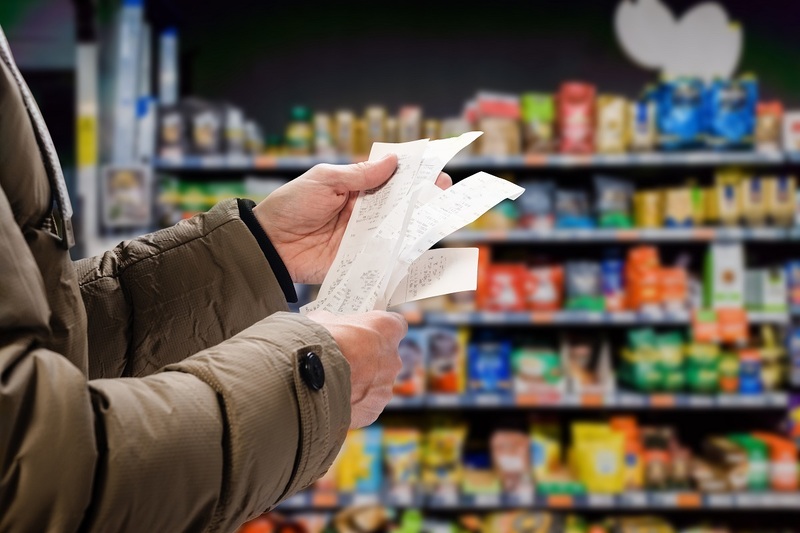Dear visitor,
You're reading 1 of your 3 free news articles this quarter
Register with us for free to get unlimited news, dedicated newsletters, and access to 5 exclusive Premium articles designed to help you stay in the know.
Join the UK's leading credit and lending community in less than 60 seconds.
Average food bill up £605 since 2021
The UK’s average food bill has gone up by around £605 over the last two years, as both climate and energy costs continue to hit shoppers.

Senior Journalist, covering the Credit Strategy and Turnaround, Restructuring & Insolvency News brands.
According to a new report from the Energy and Climate Intelligence Unit, climate costs have increased since last year rising from £171 to £192, with this more than offsetting the effects of falling energy prices this year – with this now adding more than energy to the cost of food bills since the beginning of last year with £361 of price increases attributable to climate change, and £244 to oil and gas costs.
Professor Wyn Morgan, one of the report’s authors, said: “It is clear from the evidence that climate change is an increasingly prominent feature amongst the drivers of food price inflation.
“In 2022, energy costs dominated the headlines and these fed through to a high headline rate of inflation for food. And yet, as energy costs have fallen back, climate change has emerged as a bigger driver of inflation for food over the last two years.
“Assuming average food price inflation of 15% for 2023, our results would suggest that climate change alone will account for a third of price increases this year. Given we expect climate impacts to get worse, it is likely that climate change will continue to fuel a cost of living crisis for the foreseeable future.
“With an El Niño event now confirmed, 2024 may have even worse in store for hard pressed shoppers.”
Heatwaves across the Mediterranean, India and South America in 2023 have all had a major impact on food production and global food prices this year, with food price inflation hitting nearly 20% in April and May.
This has particularly hit store cupboard items such as sugar rice and tomatoes, with olive oil prices also increasing by 50% following two years of drought and heatwaves in Spain and key exporters in southern Europe.
Meanwhile, in the UK droughts in 2022 hit key staples such as potatoes and onions, and has been followed by the unusually wet harvest and then the hottest September on record.
Energy and Climate Intelligence Unit’s land analyst Tom Lancaster said: “Climate change is playing havoc with global food production, and this is inevitably feeding through to higher prices at the tills. Across 2022 and 2023, climate change alone added the equivalent of six weekly shops to the average household food bill.
“Added to that the dependence of our current farming system on volatile oil, gas and fertiliser prices, and the last two years has seen a perfect storm of extreme weather, high gas prices and global instability leading to unprecedented food price inflation.
“The good news is that steps to make farming more sustainable can not only cut emissions but also make our food production more resilient to the extremes of flooding and drought. Government plans in England to support greener farming with more hedgerows, improved soil health and tree planting schemes are therefore vital to our future food security.”
Stay up-to-date with the latest articles from the Credit Strategy team
Get the latest industry news






